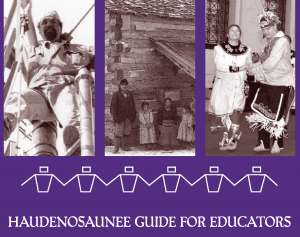Wed. October 6, 2021
Indigenous Peoples’ Day 2021: What Can Columbia Do Better?

by Elsa Stamatopoulou*
We are very glad that Columbia now celebrates Indigenous Peoples’ Day. The University has followed the appeal of Native American students and numerous other students, faculty and staff over the years asking for this Day to be honored. The celebration of the Day is a clear trend among various other universities as well as cities and states in this country.
History of the Day
Efforts to rename Columbus Day go back to 1977, when the historic Conference of Indigenous Peoples of the Western Hemisphere was held at the United Nations in Geneva. Indigenous leaders had gathered for the International Conference against Racial Discrimination. The conference recommended to replace Columbus Day and to mark Indigenous Peoples’ Day to express international solidarity with the Indigenous Peoples of the Americas. Observing Indigenous Peoples’ Day is an important step in dismantling the “Doctrine of Discovery” that has plagued the US and other legal systems.
Thanks to the advocacy of the global Indigenous Peoples’ movement, the International Day of the World’s Indigenous Peoples is marked annually on 9 August. The date was selected to honor 9 August 1982, the first day of the very first UN human rights body established to deal with Indigenous Peoples rights, i.e. the UN Working Group on Indigenous Populations. This Working Group worked tirelessly with the Indigenous Peoples’ movement and laid down the groundwork for the adoption of the UN Declaration on the Rights of Indigenous Peoples on September 13th, 2007.
What can Columbia do better?
Honoring Indigenous Peoples and their history and heritage is obviously not just a matter of one day out of the year. I would like to see a commitment in our University, so we can say that “every day is Indigenous Peoples’ Day.”
Increasing Indigenous students and faculty at Columbia is crucial. So is increasing the number of courses on Indigenous issues in the various disciplines and departments. There are also many other actions we can take, inspired by other universities such as:
- Including Indigenous Peoples’ rights or similar courses in the core curriculum so that the broad student body is exposed to the issues.
- Building an active meaningful relationship with the Indigenous Peoples of our area and of NYS more broadly.
- Naming a building or one of the walks in our campus with a name of the Lenape people, who are the people of the land on whose traditional territory Columbia is built.
- Placing Native American art in prominent places on campus, to honor Indigenous heritage.
- Appointing a Senior Adviser on Indigenous Affairs to the President.
- Creating a strategic plan for Columbia.
Academia in society
American society is hugely under-informed about the existence and history of Native Americans. I believe the education system has a big responsibility for that –from elementary school onwards. People in the US should know the history of colonization, land grabbing and deliberate policies and practices of physical and cultural erasure of Native Americans. They should be able to recognize such practices to the extent they continue today. We have to understand, to appreciate and respect the fundamental importance of Indigenous governance systems, Indigenous Peoples’ sovereignty and self-determination. In other words, there is a profound need for the country to visibly recognize and reconcile with its past and to draw conclusions about how it has to act from now on. For any such effort to be effective, Native Americans have to participate fully. And academia has an important role to play.
On 12 October 2021 the Institute for the Study of Human Rights is organizing an event, with many cosponsors, on The Role of Courts in Defending Indigenous Peoples’ Rights. For more information and registration click here.
For events at Columbia on 11 October for Indigenous Peoples’ Day, click here.
*The author is Director of the Indigenous Peoples’ Rights Program, Institute for the Study of Human Rights

